BUS301: Nestle PESTLE Analysis of the UK Food Industry Environment
VerifiedAdded on 2022/12/26
|5
|806
|99
Report
AI Summary
This report presents a PESTLE analysis of Nestle, a multinational food and beverage company, focusing on its operations within the UK food industry. The introduction highlights the importance of external environment research for competitive advantage, particularly in a complex and rapidly changing global market. The main body of the report delves into the political, economic, social, technological, environmental, and legal factors impacting Nestle. Political factors like Brexit and corporate tax reductions are discussed, along with economic challenges such as fluctuating exchange rates. Social factors, including changing consumer behavior towards healthier eating, and technological advancements, including digitalization and cyber security, are also examined. Environmental considerations, such as Nestle's sustainability efforts, and legal aspects, including health and hygiene regulations, are also addressed. The conclusion emphasizes the value of PESTLE analysis in shaping Nestle's strategies for competitiveness and sustainability in the food and beverage market. References to relevant books and journals are included.
1 out of 5
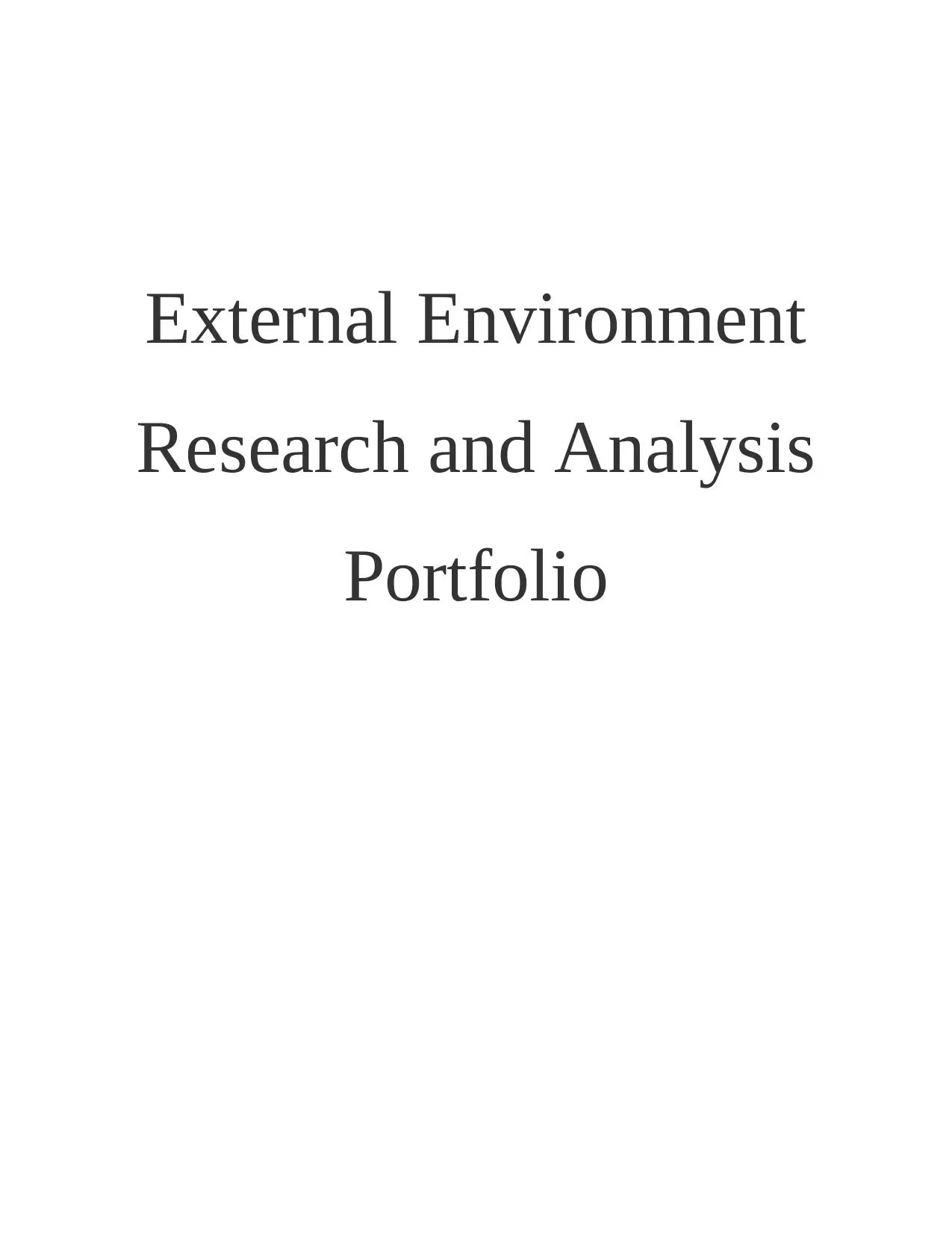
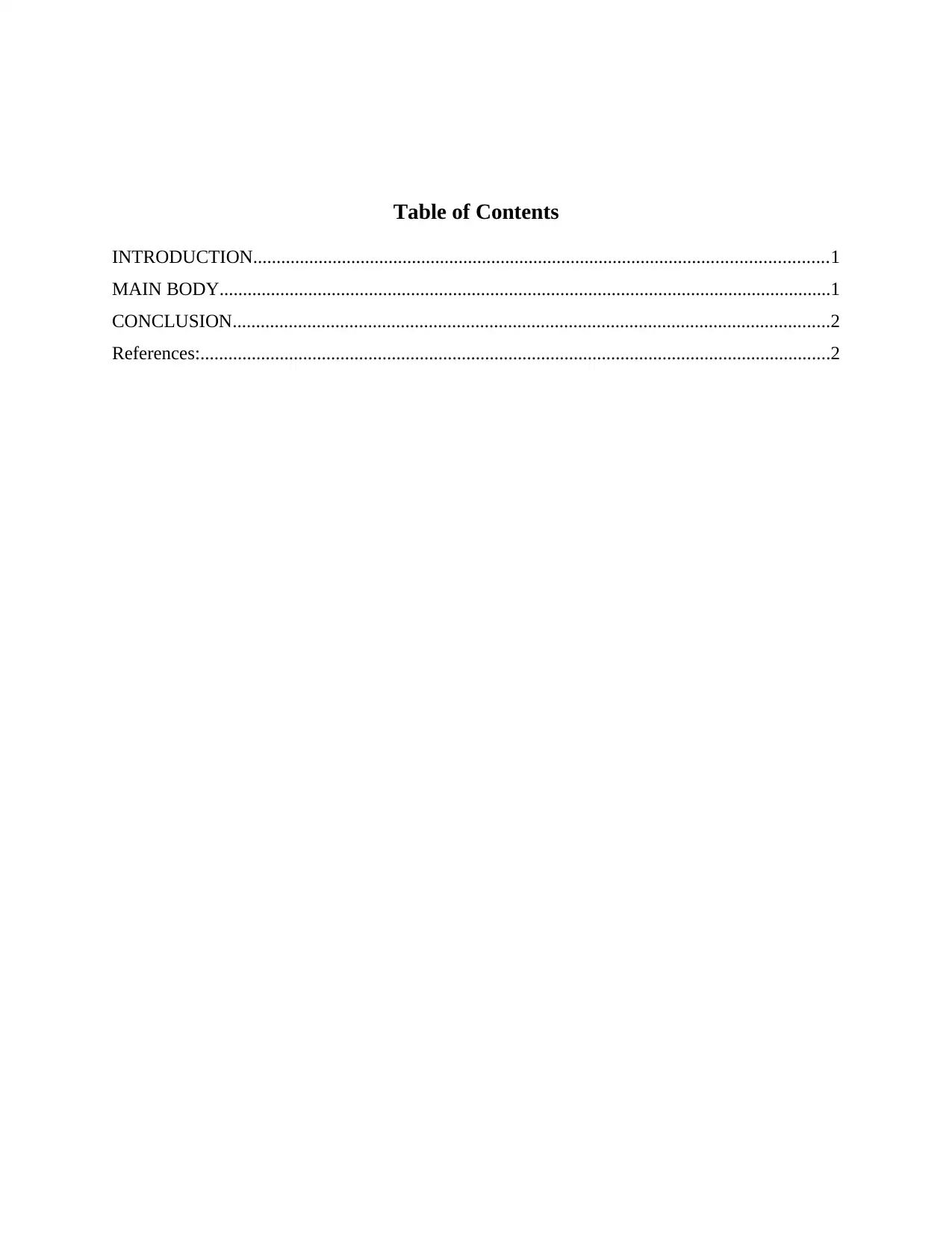
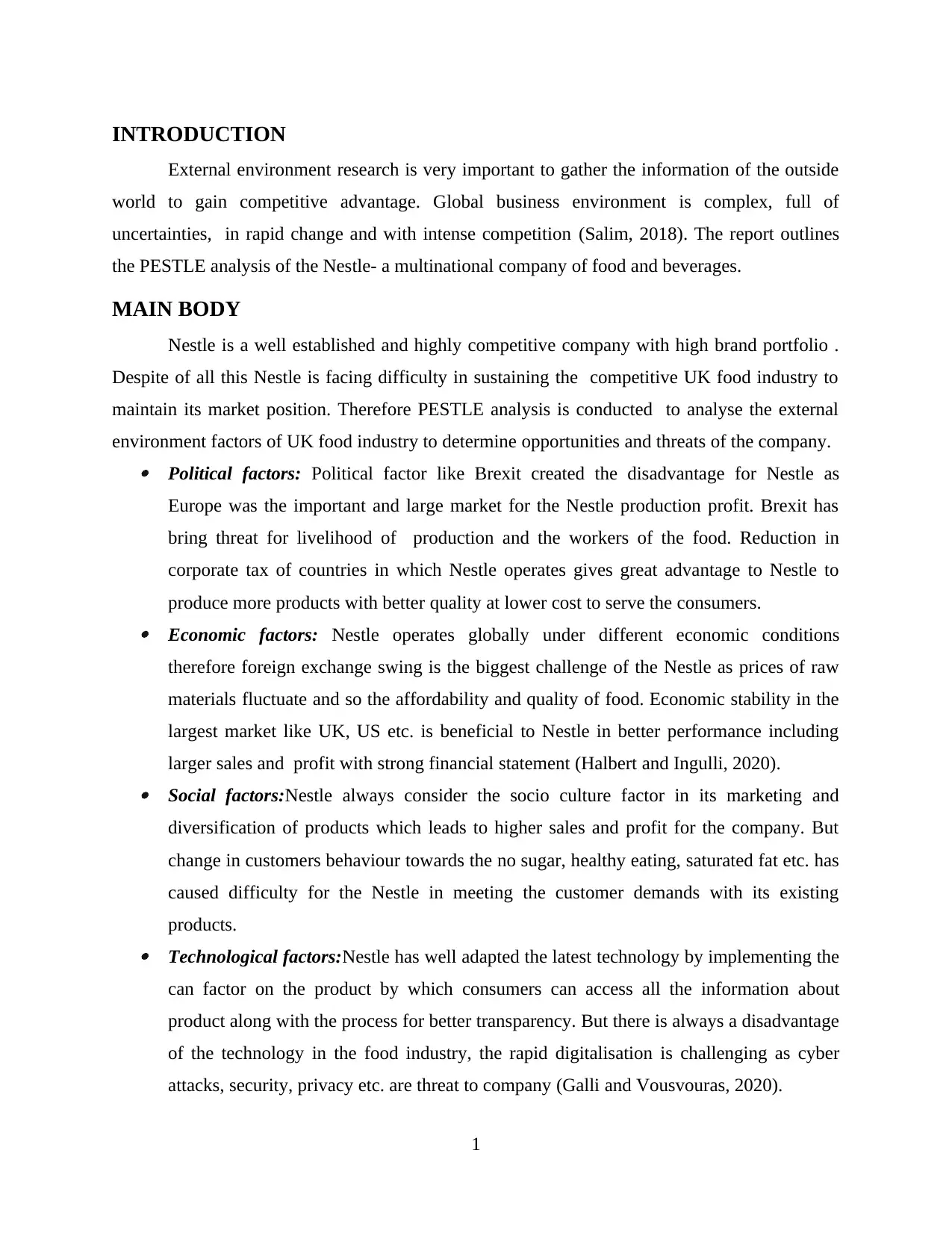

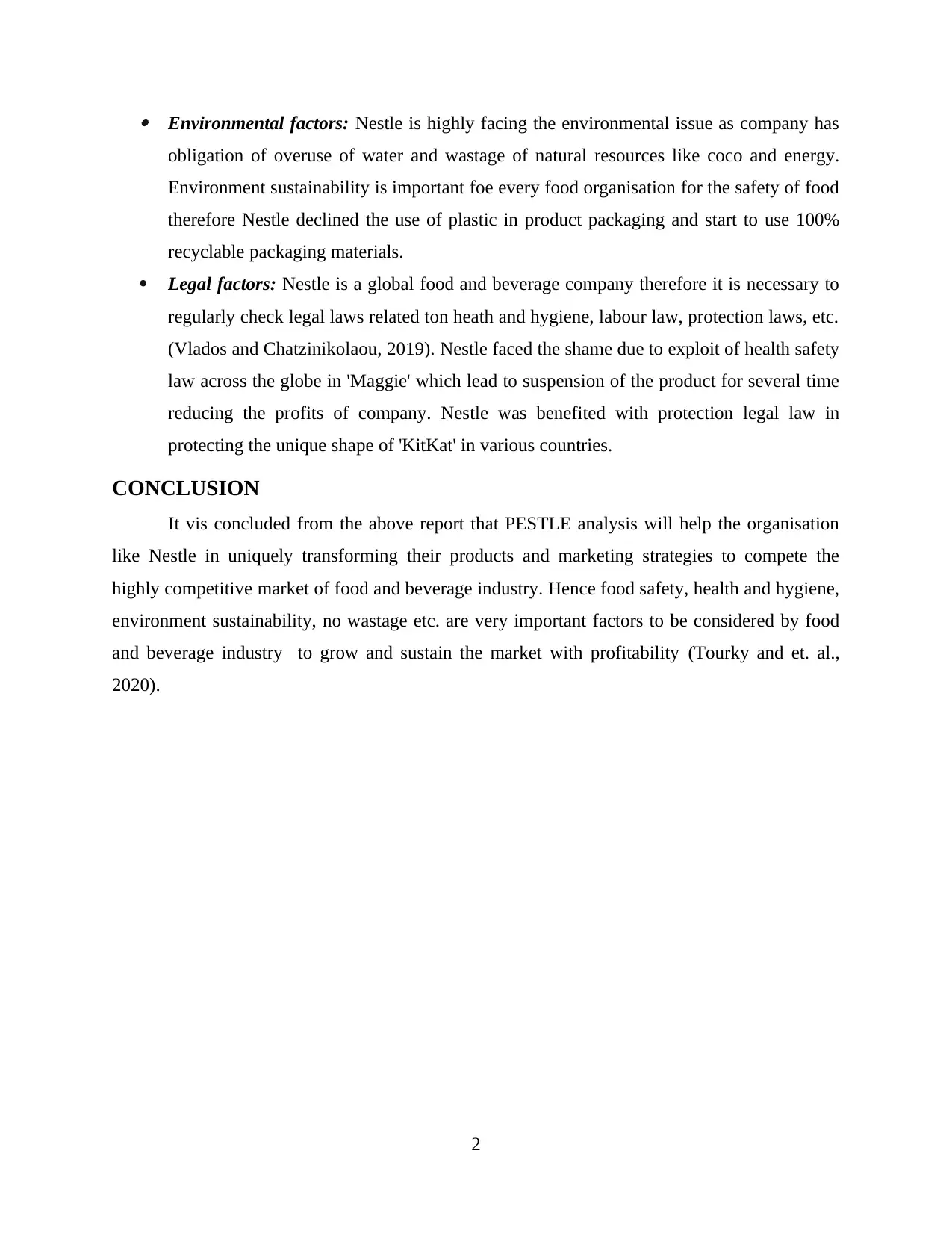
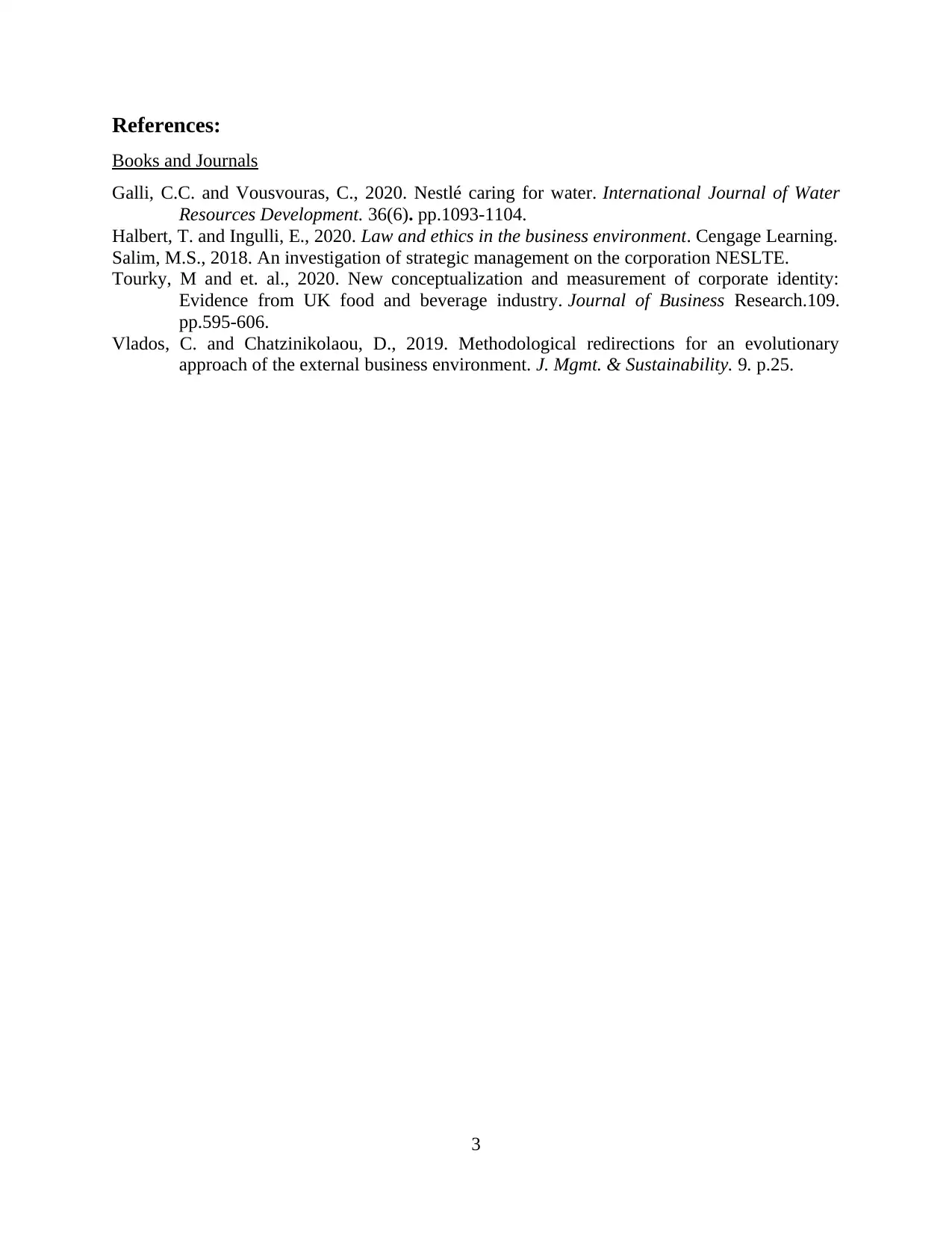






![[object Object]](/_next/static/media/star-bottom.7253800d.svg)